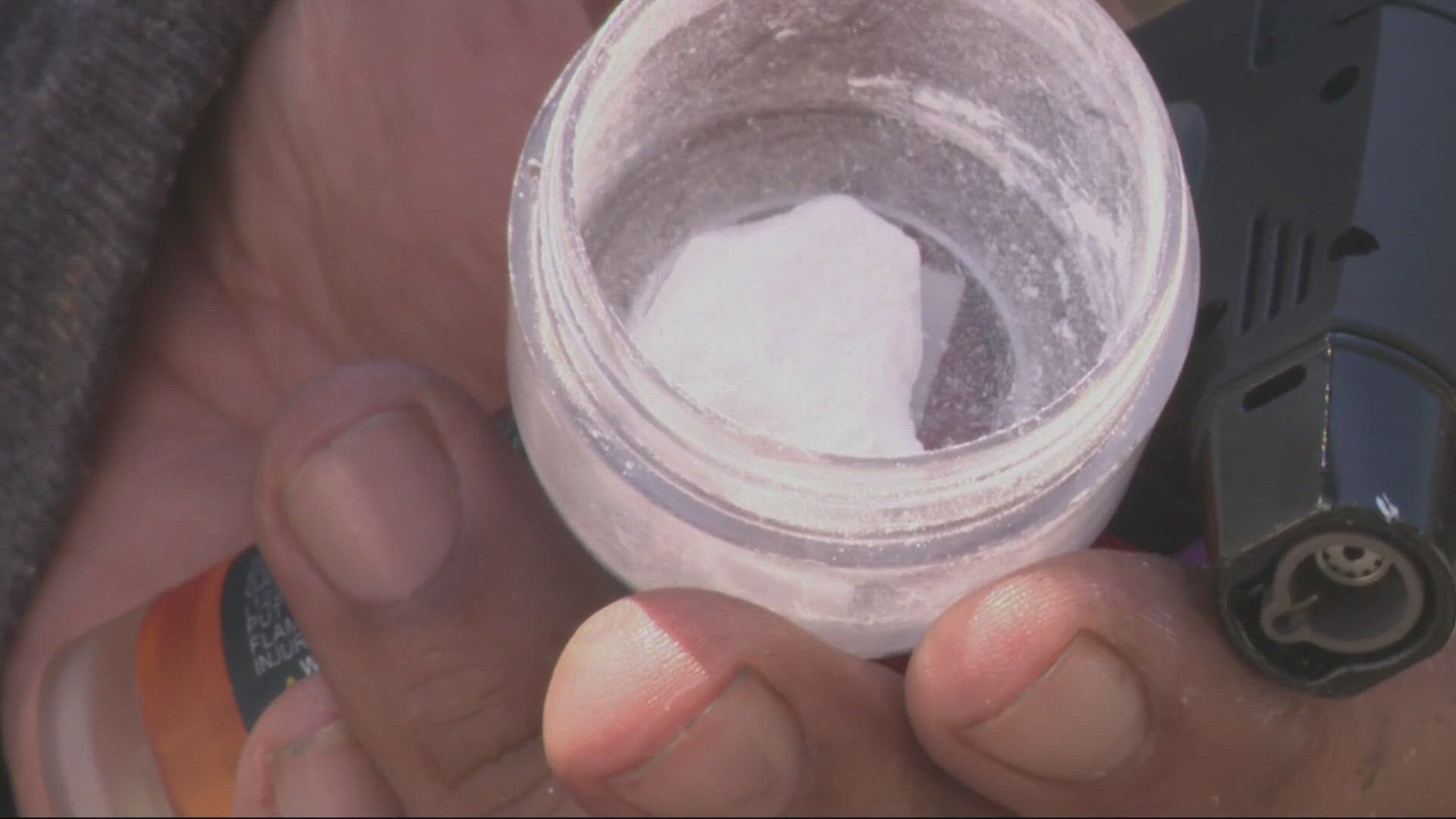PORTLAND, Ore. — Oregon's implementation of House Bill 4002 went into effect on Sunday, meaning those struggling with addiction could find themselves in jail for possessing hard drugs once again.
People could try to avoid jail time if they choose and are able to deflect into treatment. However, that has limits, and people have mixed emotions about the new law.
“We definitely need to make sure that people have the resources that they need so that they can get off drugs, stay sober and turn their lives around," said Heather Siegfried, a resident familiar with the new law.
This new law partially rolls back parts of Measure 110. That measure was approved in 2020 and decriminalized small amounts of hard drugs, with the only punishment being a fine. However, after increased drug use, particularly with fentanyl, Gov. Tina Kotek signed HB 4002, which made hard drug possession a crime once again.
“When it was decriminalized, there wasn't enough resources that were put in to making sure that people who needed the help to go to treatment could find a bed and go to treatment," said Siegfried. "We can't just fill up our jails with people who are obviously needing help."
Others aren't as opposed.
“Recriminalization I think is going to help us get back on track with providing the help to the folks who are addicts,” said Matt Tracy, another resident familiar with the legislation. “You really need to dump the money into giving the folks who have the addiction, the support and the means to be able to get out of those addictions, and that’s going to be the implementation of a number of different health centers to be able to do so and I never saw that on our streets at all."
This time, counties will have their own deflection programs, meant to offer drug users the chance to avoid jail time by opting into treatment. For example, anyone found with hard drugs such as fentanyl or heroin in Multnomah County will be handcuffed while they are checked for outstanding warrants. If they don’t have any, they could be offered deflection.
One of the current issues is that Multnomah County’s deflection center isn’t ready yet. In the meantime, the county plans to use a mobile outreach team.
Another issue is that due to staffing in the county, deflection will only be offered to those found with drugs between 8 a.m. and 8 p.m. on weekdays. Outside of those hours, it’s a citation or straight to jail.
"I don’t think it’s fixing the problem, I think it’s fixing the symptom," said Tracy. “They’re good plans, but you have to put them into implementation, it takes a while, people need to be patient about it."
Meanwhile, officials with public transportation like TriMet also believe it’s a good move, and believe it will help law enforcement better address issues with the drug crisis.
“This new tool gives us an ability to actually go out there and work with our law enforcement personnel to increase penalties out there on the system," said Andrew Wilson, chief safety officer and executive director of safety and security at TriMet.
Representatives like Kevin Mannix are also in support of the change, writing in a statement on Sunday that this move will get the state back on track to holding people accountable, and that, “This legislation also sends a message that we are no longer welcoming drug addicted people coming to Oregon to take advantage of our lack of law enforcement capability.”
On Jan. 1, Senate Bill 1553 will also go into effect. The new and separate legislation will create a stiffer penalty for anyone caught using drugs on public transportation.

